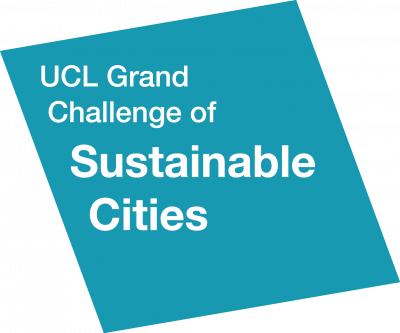Mobility and Social Equity in Informal Settlements: Ulaanbaatar's Ger Districts
Mobility and Social Equity in Informal Settlements: Ulaanbaatar's Ger Districts is a collaboration between researchers in the Bartlett School of Planning and Anthropology
1 August 2018
This small grant allowed Dr Iqbal Hamiduddin (Bartlett School of Planning) and Dr Rebekah Plueckhahn (Anthropology), to initiate pilot fieldwork on mobility and accessibility constraints in the semi-formal ger districts of Mongolia’s capital city Ulaanbaatar. These districts are home to an estimated two-thirds of Ulaanbaatar’s population (almost half of the population of Mongolia), but although there is currently little formal data on residents’ patterns of life, there is considerable anecdotal evidence to suggest that many face great difficulties over travel and access. The overall aim of this Grand Challenges project, therefore, has been to establish inter-disciplinary research on ger resident mobility. The award has supported the following three sets of project activities:
- A preliminary visit to Ulaanbaatar by both investigators in November 2018 to establish a research network with academics, NGO workers and organisations operating in the ger districts, and to identify a research site;
- Quantitative and spatial data collection by Dr Hamiduddin in May 2019, to characterise overall travel patterns and mobility shortcomings in a representative district through household travel surveys and phone-based GPS tracking of a resident sample, and
- Qualitative ethnographic studies to capture travel individual experiences in high resolution by Dr Plueckhahn in October 2019.
This project has successfully trialled and tested a mixed-methods research approach to capture travel behaviour and experiences. Quantitative and spatial data collection undertaken by Dr Hamiduddin, assisted by the partner NGO Gerhub collected 380 completed household travel questionnaires and GPS tracks from 25 participants collected over periods of 48 hours. The findings reveal long 45 minute average journey commutes endured by residents of the case study district, located in a midtown area of Ulaanbaatar approximately 5km from the downtown. These are long journey times for a relatively small city of 1.5m inhabitants and relate to both to the difficulties that many residents face in accessing the public transport system from their ger district homes, as well as slow onward transport connections to employment locations – many of which are located away from the downtown. The data also reveals that public transport users experience significant travel disadvantage, with journey times that are on average 60% greater than for car users.
Given Ulaanbaatar’s on-going problems with road traffic congestion and acute air pollution problems, the clear advantage of private car use is a point of significant concern. Further motorisation will exacerbate these existing local problems and contribute to CO₂. The findings have pinpointed specific neighbourhood measures that would improve access to the public transport network for residents.
 Close
Close


